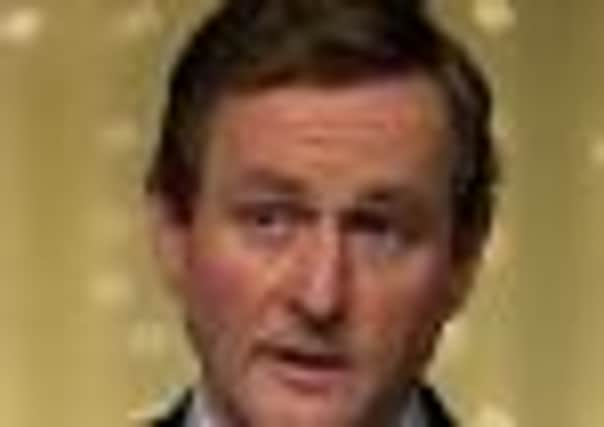Ireland torn as new tax faces boycott


Just over a third of those liable for the charge had registered to pay by yesterday, showing just how far reaching the unexpected wave of protest is.
Barring an unlikely late surge in payments, the Irish coalition faces the embarrassing prospect of more than 50 per cent of all homeowners boycotting the levy and some in Ireland are already likening the charge to Margaret Thatcher’s ill-fated Poll Tax, thought to have been her and the Conservative party’s undoing in the UK. Every homeowner in Ireland is liable to pay the tax once a year, with landlords to pay the charge on rented properties. The flat rate of €100 (£84) is temporary – a new tax based on site value is due to be introduced next year.
Advertisement
Hide AdAdvertisement
Hide AdIt was introduced after the collapse of the Irish economy and the €85bn European Union-International Monetary Fund bailout and will become the first tax on domestic property since rates were scrapped in Ireland in 1997.
Speaking to the Dail – Ireland’s parliament – on Thursday, minister for public expenditure and reform Brendan Howlin called on all homeowners to pay up.
“This is part of the survival strategy,” he said. Mr Howlin earlier described the charge, which was expected to raise around €160bn, as “a fair and just imposition on the people”.
Cathy Comerford, a self-employed mother of one from Carlow, south-west of Dublin, has seen her income fall by more than a quarter since 2008. She said the charge was “inequitable” and “not looking at people’s ability to pay”.
“It’s a totally unfair tax and the straw that broke the camel’s back. We’re saying No, we won’t pay.”
Many politicians on Ireland’s opposition benches support the campaign against the charge. The United Left Alliance, which has five seats in the Dail, has called for a boycott. Having sat on the sidelines until last week, Sinn Fein are also supporting the boycott.
Independent Roscommon/South Leitrim TD Luke Flanagan has led a series of public meetings opposing the charge.
“Young people are turning up which you rarely see at a public meeting, along with the very old, but so too are people with wealth dripping off them,” he said.
Advertisement
Hide AdAdvertisement
Hide Ad“It seems to be less about the ability to pay and more about putting down a marker to say to this government, go out to Europe and fight that bit harder and get a massive amount of debt that is not ours taken away from us.”
The deadline for the household charge coincides with the due date for a €3.06bn payment to the European Central Bank for the bailout bill on two failed financial institutions, Anglo Irish Bank and Irish Nationwide. The repayment is being covered by the issuing of a long-term government bond that is being swapped for cash in a one-year deal with Bank of Ireland.
“This [payment to the ECB] cannot be separated from the household charge,” says economic historian Conor McCabe. “The government are saying [the charge] is to pay for social services but people know exactly what this charge is for: it’s going directly to the Department of Finance and then on to the ECB.”
Having accepted the punitive €85bn EU/IMF bailout in November 2010 with comparatively little public anger, Mr McCabe noted a new “energy” among the electorate in the wake of the household charge.
“It has really galvanised people. There is a palpable energy around this at the moment,” he said.
Last Saturday, more than 3,000 people attended a rally in central Dublin against the levy. Unlike previous anti-cuts protests, many were taking to the streets for the first time.
David Gillen, a IT professional living in Dublin was scathing in his criticism of Ireland’s political classes.
“I’m fed up with the government sh**ting on the people. The government seems to be acting with impunity, as if they have won an election so they can do whatever they like now. I’m not happy with it and [boycotting the household charge] is my way of speaking out,” said the father-of-two .
Advertisement
Hide AdAdvertisement
Hide AdMr Gillen estimated that three-quarters of his friends and colleagues would not pay the household charge. The Irish government’s attempts to encourage payment have not been helped by a confusing public awareness campaign that led many to believe the charge could only be paid online. The government has since announced postal payments will be accepted for a week after the deadline closes tonight.
However Mr Gillen, and many others, will not be paying anytime soon. “If I hold off payment until September it is going to cost me €16 extra but it’s sending a message to the government that we are fed up with the whole way that we are being treated.”
The household charge is a precursor for a wider property tax that is due to be introduced next year, having been agreed to as part of the bailout deal. At present, Ireland has no property registry and some accuse the Irish government of using the household charge as a low-cost means to achieve this ahead of a full property tax.